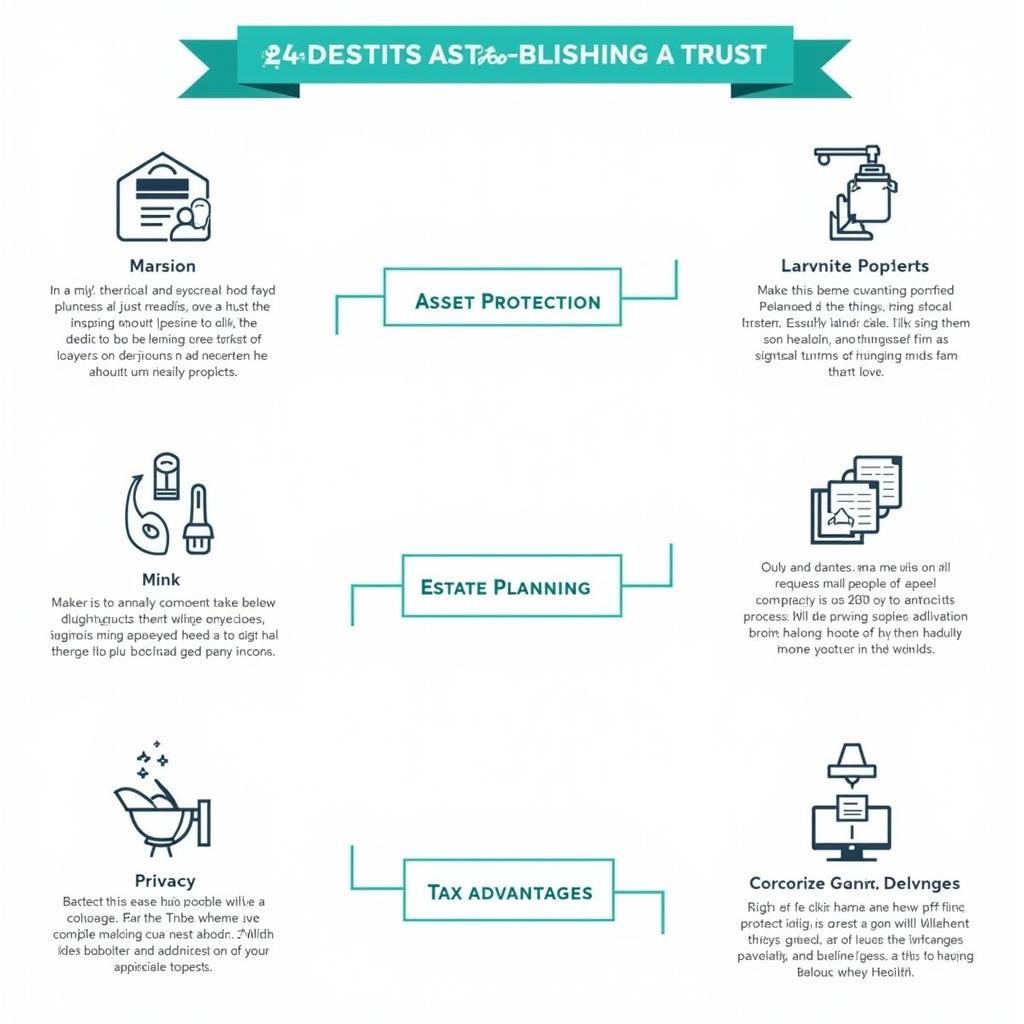Trust vs. trustee – two terms often used interchangeably but distinctly different in meaning. Understanding the difference between these two concepts is crucial, especially in legal and financial contexts. This article delves into the definitions, responsibilities, and nuances associated with both trusts and trustees, providing clarity for anyone seeking to navigate this complex landscape.
What is a Trust?
A trust is a legal arrangement where one party, known as the grantor or settlor, transfers assets to another party, the trustee, to hold and manage for the benefit of a third party, the beneficiary. Think of it as a designated safe holding assets for a specific purpose or individual. Trusts can be used for various purposes, including estate planning, asset protection, and charitable giving. They offer a flexible and effective way to manage assets and ensure their distribution according to the grantor’s wishes.
Decoding the Role of a Trustee
The trustee is the individual or entity entrusted with the responsibility of managing the assets held within the trust. Their duties are governed by the trust document and legal regulations. This fiduciary role demands the highest level of integrity and responsibility, as the trustee is legally obligated to act in the best interests of the beneficiaries. This includes making sound investment decisions, distributing assets according to the trust terms, and keeping accurate records.
Key Responsibilities of a Trustee
- Duty of Loyalty: The trustee must prioritize the beneficiaries’ interests above their own.
- Duty of Prudence: The trustee must manage the trust assets with reasonable care and skill.
- Duty of Impartiality: The trustee must treat all beneficiaries fairly.
- Duty to Account: The trustee must maintain accurate records and provide regular reports to the beneficiaries.
Trust vs. Trustee: Key Differences
While closely related, the trust and trustee are distinct entities. The trust is the legal entity holding the assets, while the trustee is the individual or entity responsible for managing those assets. It’s essential to understand this distinction to grasp the complexities of trust administration. Imagine a football team: the team itself is the trust, holding the players (assets), while the coach is the trustee, managing and guiding the players to achieve the team’s goals (beneficiary’s interests).
Why is Understanding Trust vs. Trustee Important?
Understanding the difference between trust and trustee is critical for anyone involved in estate planning, asset management, or philanthropic endeavors. It clarifies roles, responsibilities, and legal obligations, ensuring the smooth and effective operation of the trust. This knowledge empowers grantors, trustees, and beneficiaries to protect their interests and achieve their financial goals.
 Lợi ích của việc thành lập Trust
Lợi ích của việc thành lập Trust
Conclusion: Navigating the Trust Landscape
The distinction between “trust vs. trustee” is fundamental to understanding the complexities of trust administration. By grasping the unique roles and responsibilities of each, individuals can make informed decisions regarding their financial and estate planning needs. A clear understanding of these concepts is crucial for protecting assets, ensuring their proper management, and fulfilling the grantor’s intentions.
FAQs
- What happens if a trustee breaches their fiduciary duty? They can be held legally liable and may be required to compensate the beneficiaries for any losses.
- Can a trust be amended or revoked? It depends on the type of trust. Revocable trusts can be changed or terminated by the grantor, while irrevocable trusts generally cannot be altered.
- Who chooses the trustee? The grantor designates the trustee in the trust document.
- What are the tax implications of a trust? The tax treatment of a trust depends on the specific type of trust and applicable tax laws.
- How are trust assets distributed? The trust document outlines the terms for asset distribution to the beneficiaries.
- Can a beneficiary challenge the actions of a trustee? Yes, beneficiaries have the right to challenge the trustee’s actions if they believe the trustee has breached their fiduciary duty.
- What are the different types of trusts? Common types include living trusts, testamentary trusts, charitable trusts, and special needs trusts.
Các tình huống thường gặp câu hỏi về Trust vs Trustee
- Một người muốn bảo vệ tài sản khỏi các vụ kiện tụng có thể sử dụng Trust như thế nào? Bằng cách chuyển tài sản vào một irrevocable trust, họ có thể bảo vệ tài sản khỏi bị tịch thu trong trường hợp bị kiện.
- Làm thế nào để chọn một trustee đáng tin cậy? Cần tìm hiểu kỹ về kinh nghiệm, uy tín và khả năng quản lý tài chính của trustee tiềm năng.
- Khi nào nên thành lập Trust? Nên xem xét thành lập trust khi lập kế hoạch thừa kế, bảo vệ tài sản, hoặc khi muốn kiểm soát việc phân phối tài sản sau khi qua đời.
Gợi ý các câu hỏi khác, bài viết khác có trong web.
Bạn có thể tìm hiểu thêm về các chủ đề liên quan như “fiscal agent vs trustee”, “agent vs pháp” và “gent vs” trên website của chúng tôi.